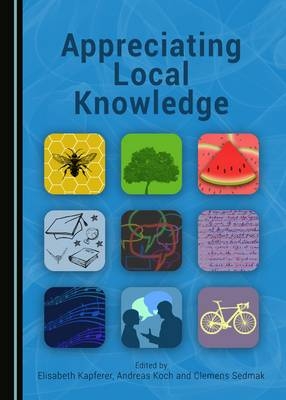
Appreciating Local Knowledge
Cambridge Scholars Publishing (Verlag)
978-1-4438-9066-3 (ISBN)
Elisabeth Kapferer is Research Fellow at the Centre for Ethics and Poverty Research at the University of Salzburg, with a focus on culture and poverty alleviation. Her research interests include local knowledge, cultural memory studies, and representations of poverty and social exclusion. Andreas Koch is Professor of Social Geography at the University of Salzburg, Vice President of the International Research Centre for Ethical and Social Issues (ifz Salzburg), and Head of the Centre for Ethics and Poverty Research in Salzburg. His research background is in spatial poverty research, geographic information science, and geosimulation modelling. Clemens Sedmak is a philosopher and theologian. F.D. Maurice Chair at King’s College London; the Franz Martin Schmölz OP Visiting Professorship for Social Ethics at the University of Salzburg; from 2015–2017 Visiting Professor of Catholic Social Tradition at the University of Notre Dame, USA. He is Deputy Head of the Centre for Ethics and Poverty Research at the University of Salzburg and President of the International Research Centre for Social and Ethical Issues (ifz Salzburg). His research interests include poverty research, social ethics, epistemology, and philosophy of science.
| Erscheinungsdatum | 13.07.2016 |
|---|---|
| Verlagsort | Newcastle upon Tyne |
| Sprache | englisch |
| Maße | 148 x 212 mm |
| Themenwelt | Geisteswissenschaften ► Philosophie ► Erkenntnistheorie / Wissenschaftstheorie |
| Sozialwissenschaften ► Soziologie | |
| ISBN-10 | 1-4438-9066-9 / 1443890669 |
| ISBN-13 | 978-1-4438-9066-3 / 9781443890663 |
| Zustand | Neuware |
| Haben Sie eine Frage zum Produkt? |
aus dem Bereich


